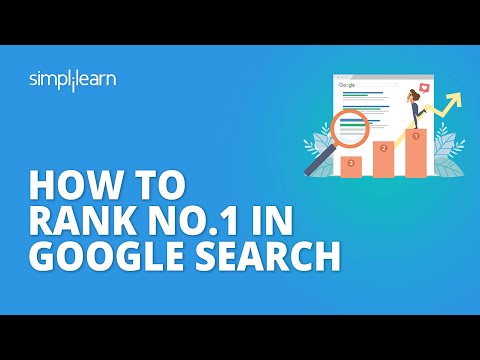Keywords in Blogs: Unlocking the Power of Effective Blogging
Keywords are the cornerstone of successful blogging. They serve as the bridge between your content and your audience, enabling your blog to be discovered, read, and shared. In this comprehensive guide, we’ll explore the essential role of keywords in blogs, strategies for their effective use, and how to craft content that ranks high in search engine results.
1. Understanding Keywords in Blogs
Keywords are the phrases or terms that users type into search engines to find information. In blogging, they act as signals to search engines about the topic of your content.
Why Keywords Matter
- Visibility: Properly used keywords make your blog easier to discover.
- Relevance: They help search engines match your content with user intent.
- Traffic Generation: Optimized keywords drive organic traffic to your site.
- SEO Foundation: Keywords are the building blocks of search engine optimization (SEO).
Types of Keywords
- Short-Tail Keywords: Broad and generic terms, e.g., “blogging tips.”
- Long-Tail Keywords: Specific phrases, e.g., “how to write engaging blog posts.”
- LSI Keywords: Contextually related terms, e.g., synonyms or related topics.
2. Researching Keywords for Blogs
The foundation of keyword optimization is thorough research.
2.1 Tools for Keyword Research
- Google Keyword Planner: Ideal for finding high-volume keywords.
- Ahrefs and SEMrush: Comprehensive tools for competitive analysis.
- Ubersuggest: Great for generating keyword ideas.
- Answer the Public: Identifies commonly asked questions.
2.2 Steps in Keyword Research
- Identify Your Topic: Define the main focus of your blog post.
- Brainstorm Ideas: Think of terms your audience might search for.
- Analyze Competitors: Study keywords used in top-ranking blogs.
- Evaluate Metrics: Look for search volume, competition, and keyword difficulty.
2.3 Targeting Long-Tail Keywords
Long-tail keywords are often less competitive and highly specific, making them ideal for niche blogs.
3. Strategically Using Keywords in Blogs
Merely finding the right keywords is not enough; placement and usage are equally critical.
3.1 Placement of Keywords
- Title Tags: Include the primary keyword in the blog title.
- Example: “10 Tips for Using Keywords in Blogs Effectively.”
- Headers and Subheaders: Use keywords naturally in H1, H2, and H3 tags.
- Introduction: Incorporate the main keyword within the first 100 words.
- Body Text: Spread keywords evenly throughout the content.
- Meta Description: Use keywords to create an engaging summary.
- Image Alt Text: Optimize images with descriptive alt tags.
- URL Structure: Ensure the URL contains the primary keyword.

3.2 Keyword Density
Aim for a keyword density of 1-2%. Overusing keywords can lead to keyword stuffing, which is penalized by search engines.
3.3 Semantic Keywords
Use synonyms and related terms to enhance the content’s depth and avoid repetition.
4. Crafting SEO-Friendly Blog Content
Effective use of keywords goes hand in hand with quality content creation.
4.1 Writing for Humans and Search Engines
- Focus on user intent: Understand what readers want from your content.
- Balance creativity and optimization: Ensure the content reads naturally while meeting SEO standards.
4.2 Content Structure
- Introduction: Highlight the problem or question your blog addresses.
- Main Body: Provide detailed insights, solutions, or answers.
- Conclusion: Summarize key takeaways and include a call-to-action (CTA).
4.3 Use Internal and External Links
- Internal Links: Connect to other relevant posts on your blog.
- External Links: Cite credible sources to enhance authority.
4.4 Update Older Posts
Refresh content with new keywords and updated information to maintain relevance.
5. Avoiding Common Keyword Mistakes
5.1 Keyword Stuffing
Overloading content with keywords leads to poor readability and SEO penalties.
5.2 Ignoring Search Intent
Misaligned content fails to satisfy users and ranks poorly.
5.3 Neglecting Mobile Optimization
With mobile-first indexing, blogs must be mobile-friendly to rank well.
5.4 Using Irrelevant Keywords
Keywords should align closely with your blog’s topic and audience.
6. Monitoring and Measuring Keyword Performance
Tracking the performance of keywords ensures your strategy remains effective.
6.1 Key Metrics to Monitor
- Search Rankings: Check where your blog appears in search results.
- Traffic Volume: Analyze organic traffic generated by keywords.
- Click-Through Rate (CTR): Measure how often users click on your links.
- Bounce Rate: Evaluate how long users stay on your page.
6.2 Tools for Analysis
- Google Analytics: Tracks site traffic and user behavior.
- Google Search Console: Provides keyword ranking data.
- Ahrefs and SEMrush: Offer in-depth SEO performance reports.
7. Advanced Keyword Strategies
7.1 Voice Search Optimization
With the rise of voice assistants, optimize for conversational queries.
- Example: Use long-tail keywords like, “What are the best ways to optimize keywords in blogs?”
7.2 Local SEO Keywords
Target location-specific keywords to attract local traffic.
- Example: “Best blogging tips for small businesses in Chicago.”
7.3 Seasonal Keywords
Capitalize on trends by incorporating seasonal or event-based keywords.
- Example: “Holiday blogging ideas for 2025.”
7.4 Topic Clusters
Organize content around central themes, linking related posts with keywords.
8. Case Study: Success with Keyword Optimization
Scenario:
A travel blogger struggled to attract readers despite publishing regular content.
Solution:
- Conducted keyword research to identify high-volume, low-competition terms like “budget travel tips Europe.”
- Rewrote existing posts with optimized keywords in titles, headers, and meta descriptions.
- Used tools like SEMrush to track keyword performance and adjust strategies.
Results:
- Organic traffic increased by 60% in three months.
- Blog engagement metrics, such as time-on-page, improved significantly.
9. Future Trends in Keyword Usage
9.1 AI and Keywords
Artificial intelligence tools like ChatGPT are reshaping how we approach keyword research and content creation.
9.2 Zero-Click Searches
Optimize for featured snippets and direct answers to capture audience attention.
9.3 User Experience as a Ranking Factor
Keywords must align with engaging, user-friendly content to succeed.
10. Conclusion: Mastering Keywords in Blogs
Keywords are the backbone of blogging success. By understanding their role, conducting thorough research, and using them strategically, you can elevate your blog’s visibility and impact. Remember, effective keyword usage is not about gaming the system but about delivering value to your audience. Embrace best practices, stay updated on SEO trends, and watch your blog thrive in the competitive digital landscape.




![Roblox Digital Gift Card - 2,500 Robux [Includes Exclusive Virtual Item] [Digital Code]](https://nbanner.link/img/B07RX6FBFR.jpg)